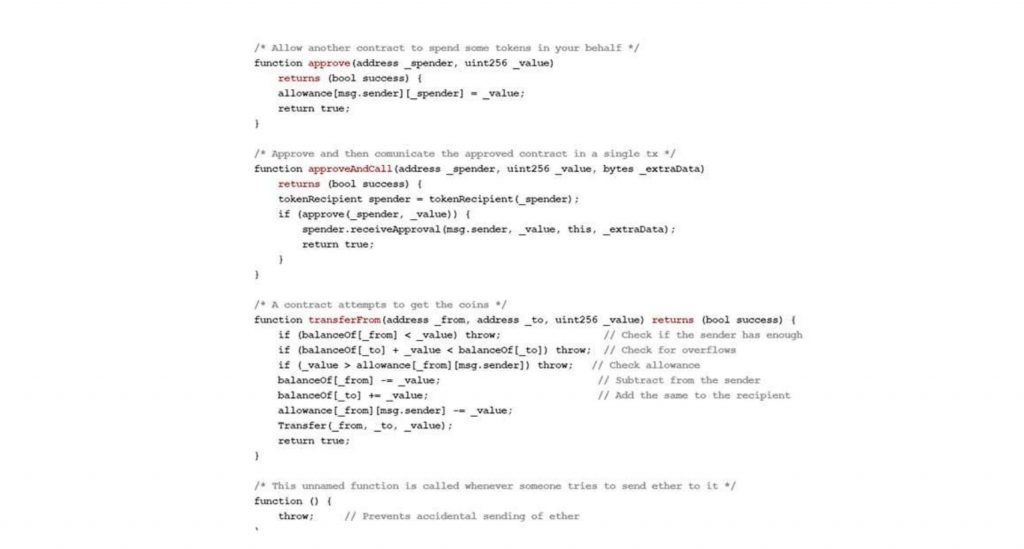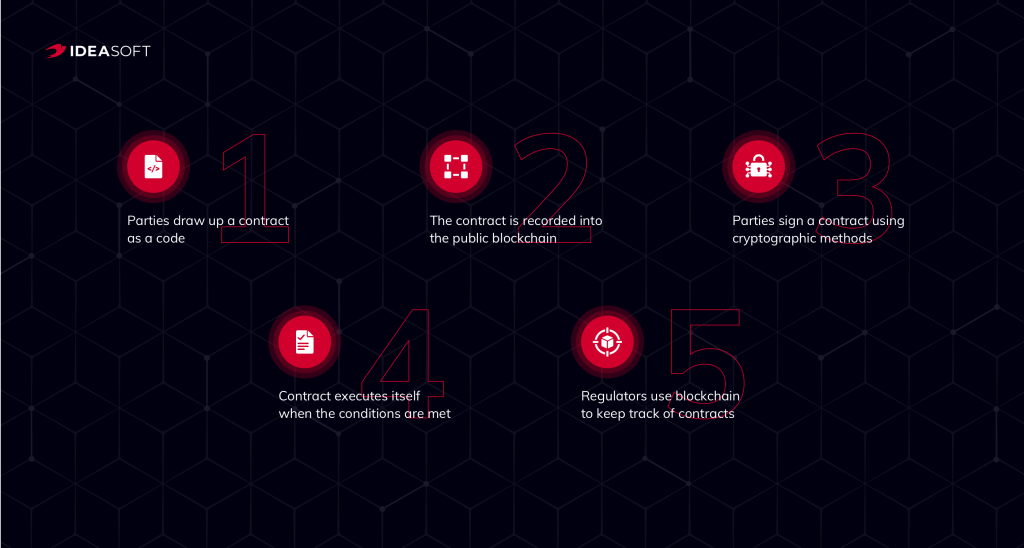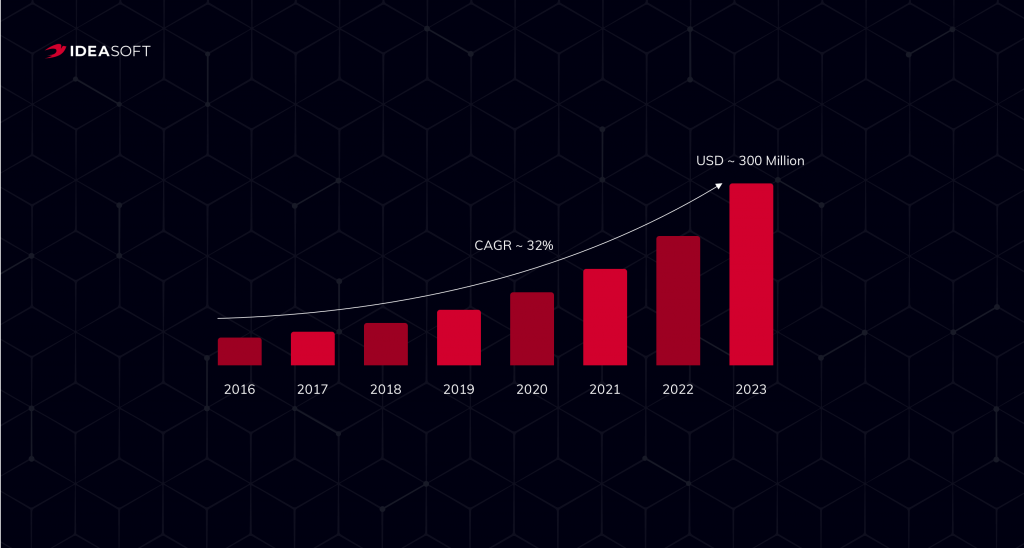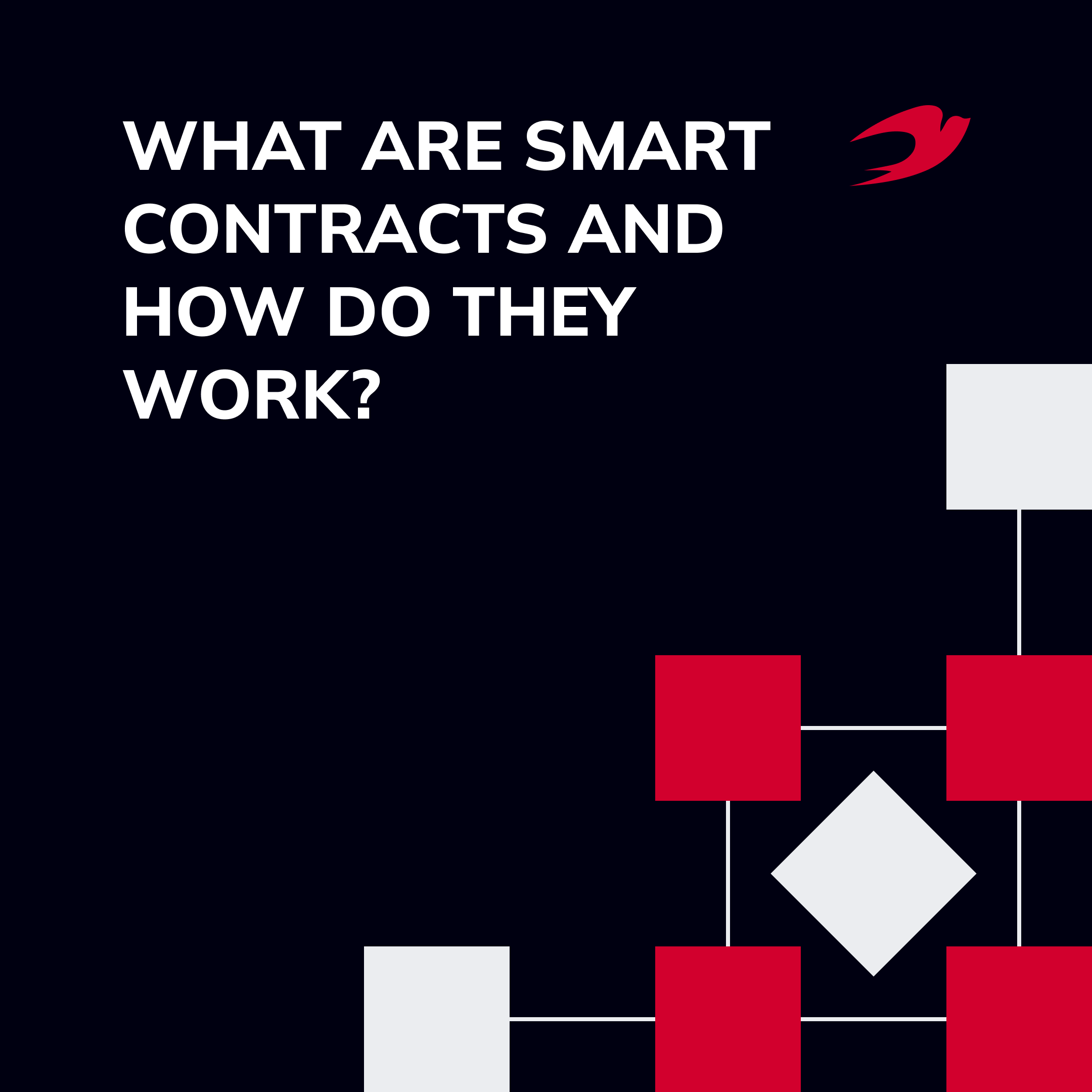Blockchain technology has opened up many new opportunities for us. Following peer-to-peer payment systems, which undermined the reputation of the traditional financial system, new technology has emerged that has threatened the work of lawyers, brokers, and auditors. And it’s all about smart contracts. Maybe, it’s another trend to look out for or the future that awaits us tomorrow. Anyway, you should find out more about it.
Table of contents:
- What is a smart contract?
- How do smart contracts work
- Advantages and disadvantages of smart contracts
- Smart contract market and potential
- As a final point
What is a smart contract
A smart contract is a self-executing transaction protocol that helps regulate the relations of the parties (for example, the seller and the buyer) without involving third parties. This type of contract is intended to automatically execute which means that the system itself registers the events determined by the parties to the contract. For example, the client received the goods, and the system automatically transferred the payment in cryptocurrency to the seller. All conditions of the contract, agreement, and possible penalties for their failures are registered in the form of a code that is placed into the blockchain.

The idea of smart contracts appeared in the early 1990s, but practical implementation became possible with the advent of the blockchain in 2008. Blockchain made it possible to get rid of the involvement of third parties and build a transparent and reliable system for creating automated contracts. Thanks to a decentralized blockchain system, the code can’t be arbitrarily changed or prevented from being executed without interfering with the entire network. So, a smart contract is managed only by the rules laid down in it.
How do smart contracts work
Like someone said, in smart contracts code is a law. You don’t need to hire a lawyer to create a contract that must comply with some rules to be considered legal. Smart contracts work on the basis of if/then. If the buyer transfers the payment, then the seller transfers the rights to the property. As soon as the condition is met, the system independently conducts the transaction, which guarantees compliance with the rules laid down in the agreement.
The process of implementing a smart contract consists of several stages:

- The parties draw up a contract in the form of a code in which the subject of the contract and the conditions are prescribed. Keep in mind that the object of the contract can only be an object that is on the blockchain, that is, first you need to tokenize your assets, translate the rights to them into a digital form.
- The logic of fulfilling the terms of the agreement is described, using the code, and the contract is recorded on the blockchain.
- Parties sign a contract using cryptographic methods. Smart contracts can only exist inside an environment that has unhindered access by executable code to objects of a smart contract.
- Having access to the objects of the contract, the smart contract monitors the achievement or violation of points according to the specified conditions and makes independent decisions.
- All information about the contract is stored on the blockchain and the parties can follow the stages of the implementation of the agreement.
Advantages and disadvantages of smart contracts
Compared to traditional contracts, smart contracts have many advantages, and the most important of them is independence. Smart contracts are concluded by two parties, no third parties, and the blockchain ensures the implementation of the agreement. You don’t have to spend money on the services of a lawyer or notary. Also, you can be sure that no one will deceive you and the terms of the contract will be fulfilled.
Another advantage is speed. In smart contracts, all stages are as automated as possible and require the presence of a person only at the initial stages of creation. This significantly saves the parties time and speeds up the processing of documents.
Smart contracts are reliable, as is the blockchain itself. The data recorded in the blockchain can’t be changed or destroyed, which imposes obligations on the parties. If one party didn’t fulfill its obligations, the other party would be protected by the terms of the contract anyway.
Cost reduction is what makes blockchain so attractive. Using smart contracts you save on involving additional specialists (lawyers, notaries, brokers), as well as on operating expenses. Such savings enable the parties to conclude an agreement on more favorable terms.
| Criterion | Traditional Contracts | Smart Contracts |
| Format | Paper version of the document | Digital version of the document |
| Regulation | Law | Blockchain |
| Currency | Regular money | Cryptocurrency |
| Remittance | Manual | Automatic |
| Setup | Days | Minutes |
| Lawyer services | Mostly necessary | Mostly not necessary |
| Cost | High | Low |
Despite all the prospects, smart contracts have some disadvantages.
- Lack of legal regulation. If the legal force of a contract is more important for you than blockchain security, then smart contracts will not live up to your expectations. In most countries, there is no regulation of blockchain, smart contracts, and cryptocurrencies.
- The complexity of the implementation. A smart contract consists of conditions and the more complicated the process of interaction between the parties, the more difficult it’s to prescribe all possible scenarios in the code. Also, smart contracts only work with objects within the blockchain, so it’s impossible to work with real-world objects, only their digital option.
- Lack of flexibility. Smart contracts are suitable for areas with clear and constant terms of interaction, because a smart contract can’t be changed if additional factors suddenly appear or you want to conclude an additional agreement.
Smart contract market and potential
According to the Market Research Future, the global smart contracts market is expected to reach approximately 300 USD Million by the end of 2023. The same research shows that Europe is the market leader for smart contracts. However, in the forecast period, North America is showing significant growth. This has greatly expanded the use of digital technology in countries such as the United States, China, Britain, and Japan.

The potential for using smart contracts is huge. They can be used in the fields of finance, insurance, real estate, trade, logistics, medicine. The simplest example of the implementation of a smart contract is a purchase in an online store: you buy a product or service, and the seller receives the money only after the event of receiving the goods has been registered.
In the financial sector, smart contracts can automate payments, as well as reduce uncertainty and credit risks. Also, smart contracts can greatly simplify the internal operations of financial institutions.
In logistics, smart contracts allow you to control the entire supply chain of goods: from shipment by the manufacturer to receipt by the final consumer. All information on the movement of goods is stored on the blockchain, and smart contracts monitor compliance with all delivery conditions.
As a final point
Smart contracts is a rather promising technology, which has its pros and cons. The more blockchain develops, the more smart contracts enter into circulation. And who knows, maybe in the next 5 years smart contracts will become an everyday occurrence. If you want to discuss the development of smart contracts or get expert advice, contact us. IdeaSoft experts have great experience in Blockchain development.

